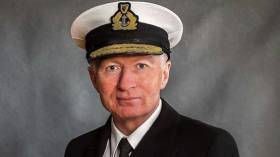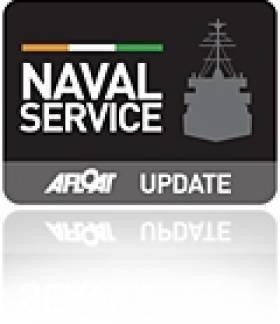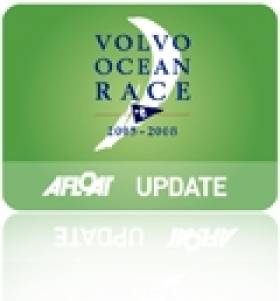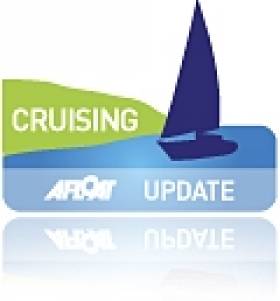Displaying items by tag: Somalia
#Coastguard - Irish Coast Guard director Chris Reynolds has been seconded to Somalia as part of an EU maritime security mission in the Horn of Africa.
Reynolds was granted special leave to take the position with EUCAP Nestor based in the Kenyan capital Nairobi from on 19 July – the first time that the Irish Coast Guard has been involved in an overseas mission.
The role involves assisting local authorities with setting up their own coastguard service in a region that's been beleaguered by maritime piracy in recent years.
Ireland's coastguard chief is responsible for all operations and field offices of the EUCAP Nestor mission between Mogadishu, Puntland and Somaliland, as well as a training base in Djibouti.
Reynolds will return to his Irish Coast Guard post after his secondment, which the Department of Transport says will last around two years "subject to how the mission evolves".
Speaking of his appointment, Reynolds said: "I believe this is a recognition, on an international level, that we in the IrCG, both volunteer and professional, do a good job and that we have gained the respect and trust of all the communities we serve and all the partners we work with.”
Ireland Could Join Effort to Battle Somali Pirates
#NAVAL SERVICE - Ireland could soon join the fight against Somali pirates in the Indian Ocean, the Irish Independent reports.
Minister of State Fergus O'Dowd confirmed that the Department of Defence was considering sending a personnel detachment to assist the EU's naval mission in the area west of Africa.
The region has been blighted by pirate attacks on merchant vessels and pleasure cruisers for a number of years.
Most recently, as reported on Afloat.ie, the situation prompted an interruption to the Volvo Ocean Race - with the six yachts shipped on a secret route to the United Arab Emirates under armed guard.
Ireland's potential contribution to the EU's Operation Atalanta is known as an autonomous vessel protection detachment (AVPD), and would be used to protect the likes of food aid ships from the World Food Programme that sail without a naval escort.
The Irish Independent has more on the story HERE.
VOR Second Leg Cut Short Over Piracy Concerns
#VOLVO OCEAN RACE - The second leg of the Volvo Ocean Race from Cape Town to Dubai has been cut short by organisers as a result of the growing threat of piracy in the Indian Ocean, The Irish Times reports.
The six yachts competing will be protected by armed guards as they are shipped on a secret route to the United Arab Emirates due to piracy concerns.
The boats will be transported by ship from an undisclosed location to Sharjah in the Arabian Gulf, from where they will sprint to the finish line in Abu Dhabi.
All six teams are currently in Cape Town, with Team Sanya, PUMA and Abu Dhabi Ocean Racing hoping to get back in the race after retiring in the first leg.
As previously reported on Afloat.ie, NATO recently foiled a pirate attack on a Spanish fishing vessel between the Seychelles and the Somali coast.
The Irish Times has more on the story HERE.
Royal Navy Anti-Piracy Frigate Visits Dublin Port
The Royal Navy's Type 22 frigate HMS Chatham (F87) which recently returned to UK waters after a seven month deployment on anti-piracy duties off Somalia, visited Dublin Port last weekend, writes Jehan Ashmore.
HMS Chatham was the lead vessel for NATO's 'Operation Ocean Shield' as part of a multi-national task force in the seas off the African state that in recent years has become notorious for piracy.

HMS Chatham departs Dublin Bay and the rocks off Dalkey Island. Photo: Jehan Ashmore /ShipSNAPS
The frigate departed Dublin on Monday afternoon and set an easterly course off the Baily Lighthouse, but surprisingly the 5,300 tonnes vessel returned into the bay. HMS Chatham then crossed the bay towards Sandycove. From there the 148m vessel which has a draft of 6.7m veered in a south-easterly direction, to sweep past off the rocky outcrop, to the north of Dalkey Island and continued southbound off The Muglins.
In mid-November the frigate visited her namesake port on the Medway to mark the 20th anniversary since the vessel's commissioning at Chatham in 1990. The occasion was also the first time that such an event had taken place outside a Royal Navy establishment.
Built in 1988, the vessel was launched from the Swan Hunter shipyard on the Tyne and is normally based in her homeport of Devonport, Plymouth.
Cruising Association Delighted Members Paul and Rachel Chandler are Safe
The Cruising Association is delighted that members Paul and Rachel Chandler are safe after their ordeal and hopes that they will soon be reunited with friends and family.
President Stuart Bradley says "It has been a truly awful ordeal for Paul and Rachel. They have conducted themselves with extraordinary dignity and bravery in very harsh conditions throughout the 388 days of their capture. The Cruising Association has kept in close touch with representatives of their family throughout and followed their wishes. Many letters of support from Cruising Association members have been forwarded to them. In many instances those letters have been acknowledged personally by family members. I received messages from Paul's sister Jill Marshment, and Rachel's brother Stephen Collett shortly after 6.30 am today informing me of their release but requesting no publicity until Paula and Rachel were safely out of Somalia. I would like to thank the press and news media for showing restraint in covering this story. Soon after Paul and Rachel's capture we were advised that publicity only encourages hostage-takers to believe their ransom demands would be met and that it would delay the release of Paul and Rachel Chandler. We have maintained silence until now in order to support the various attempts to secure their release. We are now free to speak."
Like many thousands of CA members the Chandlers are simply leisure sailors. They left the UK to realise their dream of sailing around the world. That dream turned to a nightmare when, in international waters 600 hundred miles from Somalia, they were taken captive by pirates and held to ransom. Peggie Manton, Secretary of the CA's Mediterranean Section knows the Chandlers well having spent many months sailing with them in the Mediterranean. Peggie says "We are all thrilled at the news that Paul and Rachel have been released and we can't wait to see them safely back home. We can only guess at what they have had to endure but they have come through it bravely and we are all very proud of them."
Cruising Association Patron, Sir Robin Knox-Johnston CBE says "I am very pleased to hear that Paul and Rachel are safe. It has been a truly dreadful time for them and we look forward to welcoming them back home. I, in common with all of the Cruising Association's members, have been waiting for this news and we cannot say how pleased we are to hear that they are at last safe and will shortly be on their way home. The growing threat of piracy is something all governments must work towards combating."
Stuart Bradley, CA President says "We work closely with the UK Ministry of Defence, the Foreign and Commonwealth Office and The Maritime Security Centre (Horn of Africa) part of the EU Naval Force, to reduce the risk of piracy to innocent yachtsmen. We will continue to do everything we can to make the seas safe for everyone who wants to sail on them. There is a crying need for international intervention to deal with the background issues in Somalia, and the problem of piracy in that area is not likely to be resolved until stability and a sound economy can be introduced."
































































